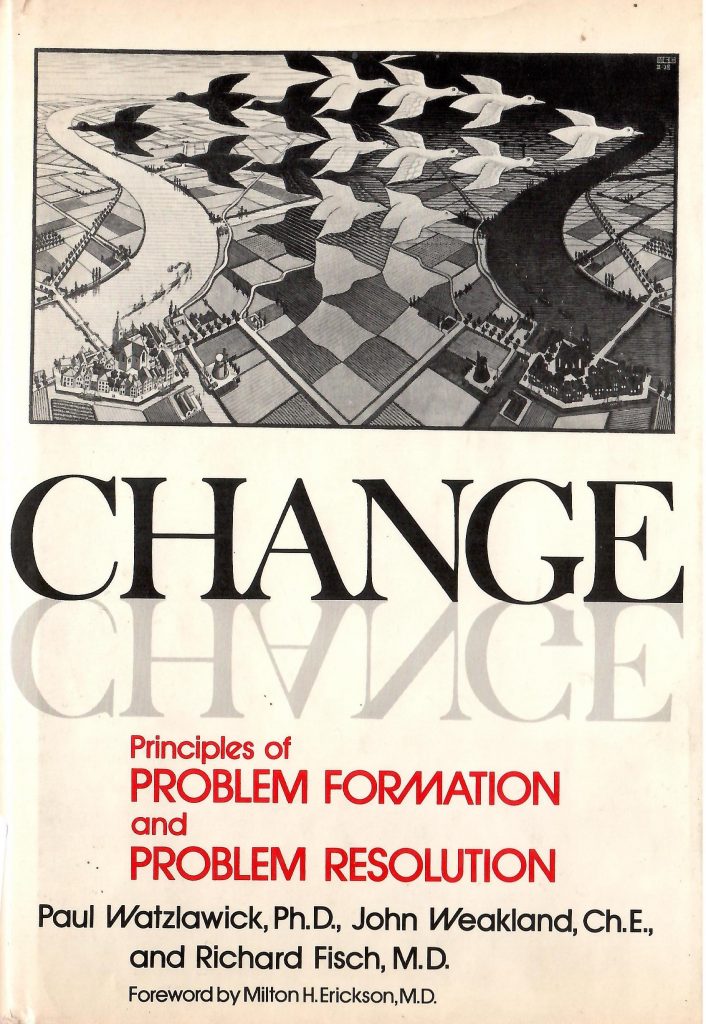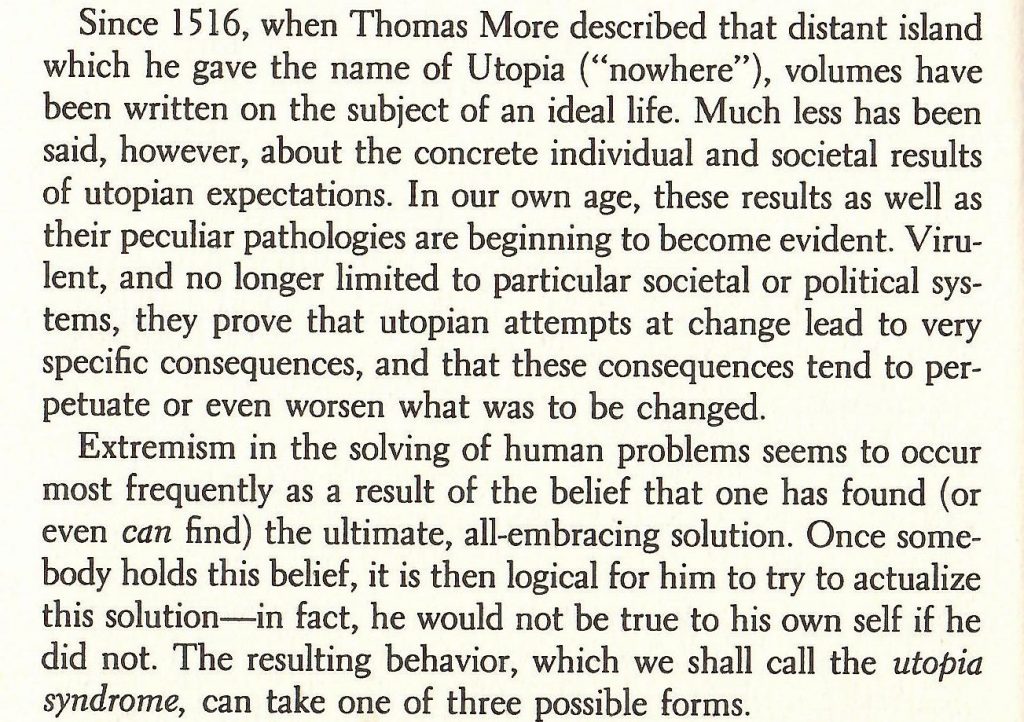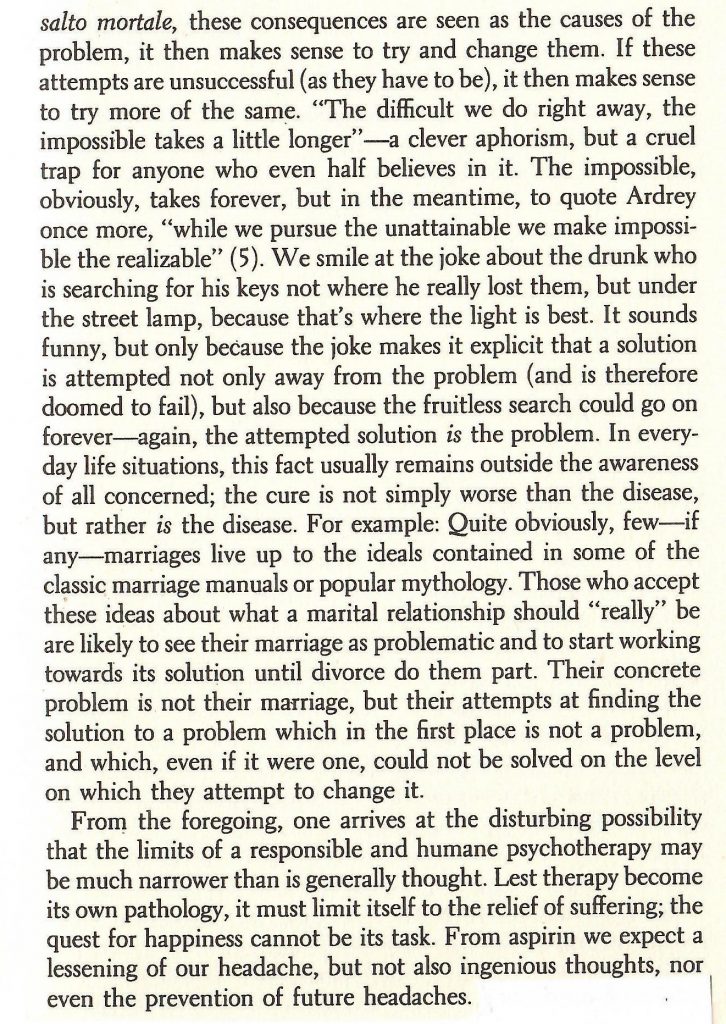“If men define situations as real,
William Issac Thomas,
they are real in their consequences.”
quoted by Sylvia Sussman in Views Magazine, summer 1965
Is Limitation Philosophy a Utopian Solution?
Reading a chapter from CHANGE: Principles of Problem Formation and Problem Resolution by Paul Watzlawick, John Weakland and Richard Fisch I have been examining how Limitation Philosophy sees problems in general and what sort of solution it proposes to be.

Link to Downloadable PDF of Book Chapter

The Three Forms of Utopian Syndrome Summarized
Introjective
It is better to travel hopefully and never arrive.
Projective
Limitation Philosophy Is No Utopia
Done right Limitation Philosophy is probably better characterized as Non-Utopian. We human beings are LIMITED. That’s not utopia.


Limitation Philosophy is about concrete solutions to well defined problems. We believe the thoughts of God’s omniscient mind cannot be discerned by our limited human minds, so we stop trying.
Limitation Philosophy accepts that it’s non-anthropomorphic theology (based in applying limitless as a term of logic to an intellect, emotion and will personality structure), is a belief about reality that must not be mistaken for reality itself.
Limitation Philosophy limits other beliefs to the terms of apparent observation. The idea that God’s general will is that all things thrive where and when they can and accept passing away once thriving becomes for whatever reason impossible is called benevolence without favor. One might argue that in the many cases where thriving is cut short while it is a mere possibility is not benevolence at all, and I would likely point out that it is a general observation and you may be right about some details its general language does not mention. That is the beauty of being a non-utopian agnostic, I know only that I am limited, and do not posses complete answers.